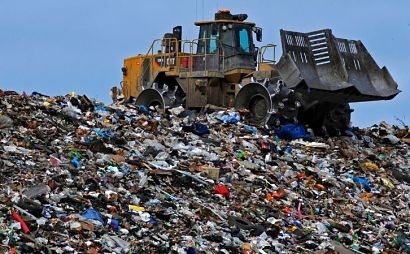
VRNG and WIN Waste anticipate the projects will initially produce more than 2.7 million MMBtu’s of RNG annually, with plans to more than double that within 11 years, making the projects among the largest RNG projects in the country and which, once commissioned, are expected to result in the avoidance of more than 120,000 tons of fossil-based carbon dioxide (CO2) emissions yearly. In addition, the LFG-to-RNG projects executed under the partnership are expected to help support the local economy by creating dozens of construction jobs and full-time plant operator positions.
“VRNG is proud to be working with WIN Waste, a company whose mission of investing in more sustainable waste practices is well aligned with our mission to capture methane emissions and convert them into a renewable resource that can support local communities and the planet at large” said Bill Johnson, CEO of VRNG. “We believe we have brought some of the best talent in the industry together at VRNG, and we are very excited to be able to deploy our skills and our capital to help WIN Waste meet its sustainability and financial goals. We look forward to leveraging our resources and team’s extensive experience across the waste management and natural gas industries to provide cleaner, more sustainable energy for consumers today and into the future.”
The RNG produced from the projects is expected to be used by customers in the transportation fuel market seeking to reduce their carbon footprint. The amount of CO2 emissions expected to be eliminated as a result of these LFG‑to‑RNG projects is equivalent to those produced by 12 million gallons of gasoline or 250,000 barrels of oil annually. Additionally, the energy content expected to be gained as a result of the RNG produced from the projects is equivalent to the energy required to heat more than 35,000 homes annually.
“These projects are the culmination of a massive undertaking to embed sustainability into every facet of our company’s operations” added Dan Mayo, CEO of WIN Waste Innovations. “Turning the greenhouse gases that are a normal byproduct of end disposal into renewable fuel exemplifies our mission to invest in more environmentally friendly practices while providing the essential waste services our communities need. We are delighted to partner with VRNG to create two of the most technologically and environmentally advanced landfills in the world.”
A natural byproduct of decomposing landfill waste, LFG is typically collected and flared to burn off the methane it contains as required by regulators. However, collecting and converting the methane present in LFG into a cleaner, renewable fuel – consistent with VRNG and WIN Waste’s planned practices at the two Ohio landfills – is intended to serve as a solution to reduce the need for combustion of new fossil fuels.
For additional information:

